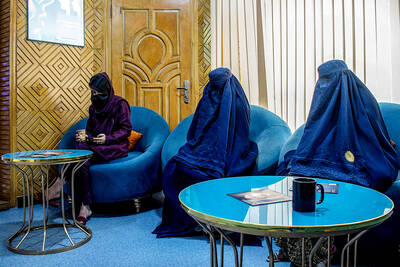Astronomers said Thursday the oldest and most distant planet yet found is a huge, gaseous sphere 13 billion years old and 5,600 light years away, a discovery that could change theories about when planets formed and when life could have evolved.
The planet, more than twice the size of Jupiter, orbits two stars, a pulsar and a white dwarf that linked together about a billion years ago. The system is in the constellation Scorpius within a globular cluster called M4 that contains stars that formed billions of years before the sun and its planets.
"All of the stars in this cluster are about the same age, so the presumption is that the planet is that age also," Harvey Richer, an astronomer at the University of British Columbia in Vancouver, Canada, said Thursday at a NASA news conference.
The pulsar, a rapidly spinning star, was discovered in M4 about 15 years ago. Astronomers shortly afterward found that it was gravitationally bound to a white dwarf, the remnants of an ancient, sunlike star that had exhausted its hydrogen and helium fuel. There was suspicion that yet another body was orbiting nearby, but the planet was not discovered until astronomers studied data from the Hubble Space Telescope.
Alan Boss, an astronomer at the Carnegie Institution in Washington, said finding such an ancient planet is a "startling revelation" because it means that planets could have formed within a billion years after the big bang, far earlier than most theories have stated.
"This means that 13 billion years ago, life could have arisen and then died out," said Boss. "This has immense implications."
Astronomers in recent years have found 107 other extra-solar planets -- planets outside of the solar system -- but all of those are about the same age or just slightly older than the sun, 4.5 billion years.
It was thought that planets could not form until there had been at least one generation of stars after the Big Bang because the planet building requires heavier elements, such as carbon, silicate and iron. These elements, called "metals" by astronomers, are thought to have formed during the life cycle of the early stars, when hydrogen and helium were burned in fusion fires.
The sun is a third-generation star, but the M4 stars are believed to be in the first generation after the Big Bang, some 14 billion years ago.

Decked out with fake crystal chandeliers and velvet sofas, cosmetic surgery clinics in Afghanistan’s capital are a world away from the austerity of Taliban rule, where Botox, lip filler and hair transplants reign. Despite the Taliban authorities’ strict theocratic rule, and prevailing conservatism and poverty in Afghanistan, the 20 or so clinics in Kabul have flourished since the end of decades of war in the country. Foreign doctors, especially from Turkey, travel to Kabul to train Afghans, who equally undertake internships in Istanbul, while equipment is imported from Asia or Europe. In the waiting rooms, the clientele is often well-off and includes men

BEIJING FORUM: ‘So-called freedom of navigation advocated by certain countries outside the region challenges the norms of international relations,’ the minister said Chinese Minister of National Defense Dong Jun (董軍) yesterday denounced “hegemonic logic and acts of bullying” during remarks at a Beijing forum that were full of thinly veiled references to the US. Organizers said that about 1,800 representatives from 100 countries, including political, military and academic leaders, were in Beijing for the Xiangshan Forum. The three-day event comes as China presents itself as a mediator of fraught global issues including the wars in Ukraine and Gaza. Addressing attendees at the opening ceremony, Dong warned of “new threats and challenges” now facing world peace. “While the themes of the times — peace and development —

COMFORT WOMEN CLASH: Japan has strongly rejected South Korean court rulings ordering the government to provide reparations to Korean victims of sexual slavery The Japanese government yesterday defended its stance on wartime sexual slavery and described South Korean court rulings ordering Japanese compensation as violations of international law, after UN investigators criticized Tokyo for failing to ensure truth-finding and reparations for the victims. In its own response to UN human rights rapporteurs, South Korea called on Japan to “squarely face up to our painful history” and cited how Tokyo’s refusal to comply with court orders have denied the victims payment. The statements underscored how the two Asian US allies still hold key differences on the issue, even as they pause their on-and-off disputes over historical

BRIBERY ALLEGATIONS: A prosecutor said they considered the risk of Hak-ja Han tampering with evidence to be very high, which led them to seek the warrant South Korean prosecutors yesterday requested an arrest warrant for the leader of the Unification Church, Hak-ja Han, on allegations of bribery linked to the country’s former first lady and incitement to destroy evidence. The move came a day after the 82-year-old was questioned over her alleged role in bribing former first lady Kim Keon-hee and a lawmaker. Founded in 1954 by her late husband, Sun Myung Moon, the Unification Church has long been the subject of controversy and criticism, with its teachings centered on Moon’s role as the “second coming” and its mass weddings. Followers are derisively referred to as “Moonies.” However, the church’s